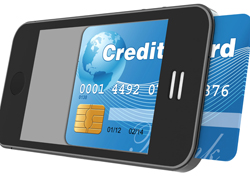Mobility allows us to work, take care of everyday tasks and enjoy life from handheld devices like smartphones and tablets. The ease and convenience cannot be denied, but with it comes certain risks and precautions. The concept of mobile money is proliferating across the globe, as demand for transferring cash quickly becomes a necessity of modern life. Mobile payments are regulated, and Money Services Businesses, or MSBs, must be licensed in any U.S. state where they do business.
But not every transaction is simple and domestic, and there is stepped up suspicion and scrutiny when money is being sent overseas. It’s no secret that the Internet and mobility have spawned a surplus of scams. While mobile money payments are generally cheaper as well as quicker, there are times when remitting money to other countries creates its own worries. There’s a difference between using a trusted service like PayPal to buy a household appliance, and sending money to a needy relative in a country without an official banking system. Mobile money is gaining popularity all over the world, with mobile phone-based money transfer services like M-Pesa (M for mobile, pesa is Swahili for money), operated by Kenya’s largest mobile network operator. But many nations still have a way to go to become part of a safe global mobile network.
Even as cutting edge technology makes its way into every industry and every corner of the world, some services remain arcane in a dynamic global marketplace. While big global banks can virtually transfer large sums in a flash, those seeking to move smaller amounts across the world are often stuck shelling out a relatively high fee for subpar service. That’s where nimble new alternatives like Xoom Corporation, a San Francisco-based Internet company backed by major venture capital firms, are finding a lucrative niche. Founded in 2001, Xoom allows anyone with an Internet connection to send money to people in 30 countries and doesn’t require recipients to have a bank account or Internet connection to receive funds. Senders can fund their money transfer with a credit card, debit card or bank account.
Most large and established banks have smart phone apps that make it easy for customers to transfer money, and such offerings are likely to quickly proliferate among smaller regional banks. Cross-border collaboration is enabling more firms to extend their global reach. Ria, the third-largest global money transfer company and a subsidiary of Euronet Worldwide, on June 21 announced an expansion of its payout network in Nigeria through a correspondent agent agreement with FirstBank of Nigeria. This partnership allows customers to remit money either through direct payment into the recipient’s account or for cash pick-up at one of FirstBank’s branches. Such burgeoning markets are hotbeds for continued growth in the money transfer business. According to the World Bank, Nigeria continues to be one of the top ten countries in money remittance, accepting more than $10 billion a year, accounting for a major chunk of the $483 billion global cross-border market last year.
While the opportunity for growth is tremendous, the demand for such services faces stepped up scrutiny. A regional manager of a Somali-owned money transfer company in Minnesota testified June 21 before a congressional subcommittee that Somalis “face a dead end” unless lawmakers loosen regulation on commercial banks that serve the companies used to wire money to relatives. Minnesota is home to the largest Somali-American population in the United States. Last October, a federal jury found two Minnesota women guilty of raising money for Al-Shabaab, an al Qaeda-affiliated terror organization, prompting Minnesota banks to cease money transfers by Somalis living in the state to their families back home as of December 15. In February, a Somali-American man admitted in federal court in Minneapolis that he helped raise money so others could travel from the U.S. to join Al-Shabaab, and that he sent money to Somalia so one of those travelers could buy a firearm. This poses a major problem for those who want to legitimately transfer money, as Somalia lacks any formal banking system.
The international market is ripe and the established providers of traditional money transfer are honing in on the mobile money market. While Western Union moves nearly $1 in every $5 that is wired around the world, sending close to $80 billion through almost half a million agents last year, followed by MoneyGram, which transfers about $20 billion a year, they charge much higher fees than startups and agile technology-focused companies like Xoom. Western Union recently joined with African telecom company MTN in Uganda to launch a mobile money-transfer service, and gave away 10,000 Western Union-branded mobile phones. Western Union has agreements with 11 mobile operators and plans for 17 more. While the established behemoth is growing its reach through these partnerships, the Xoom model is more likely to snatch a wider swath of the overall market with its strong technology focus, and low fees.
Mobil money is becoming an indispensible part of busy people’s lives, and it’s quickly emerging as a means of doing anything that requires the transfer of funds. There is no corner of the world that will remain untapped by the market for too long, as demand grows and the technology makes it simple to operate anywhere as long as you’ve got an Internet connection. For most mundane tasks, like paying bills or shopping on eBay, there’s little, if not less, worry or hassle than doing things the old-fashioned way. But as the market spreads to trickier tasks like sending money to countries rife with strife, there’s more to consider. It’s likely that regulators and lawmakers will need to take far more notice as the potential for crime and corruption widens along with international expansion.
#####
Faisal Hoque (faisalhoque.com) is Founder, Chairman, and CEO at BTM Corporation(www.btmcorporation.com) and founder of research think-tank BTM Institute (www.btminstitute.org). His newest book is The Power of Convergence (www.thepowerofconvergence.com). Follow him on Twitter @faisal_hoque (https://twitter.com/#!/faisal_hoque). © 2012 Faisal Hoque













